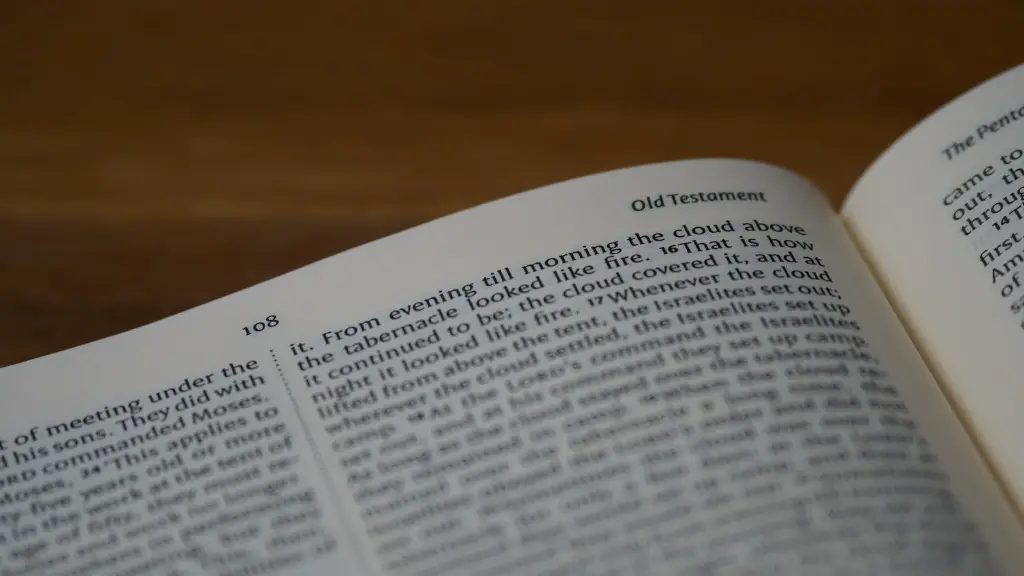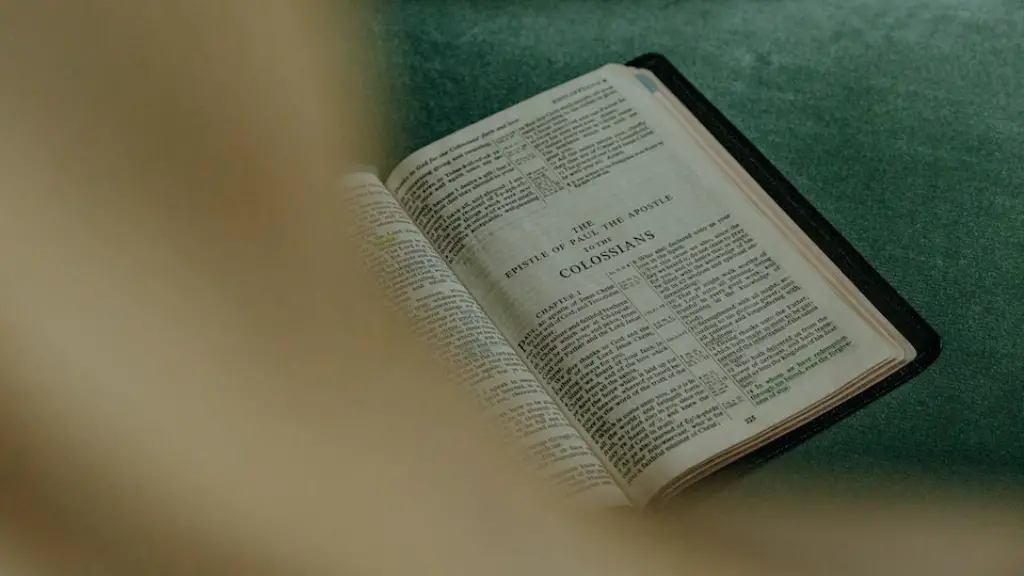How Many Covenants In The Bible
In the Bible, its argued that there are several covenants made between God and man. That being said, scholars have identified nine different, distinct covenants throughout the bible. The first covenant is found in Genesis 3-15 and is known as the Edenic Covenant. God establishes a relationship with man here, promising never to send a worldwide flood again and offering hope that one day his seed, Jesus, would crush the serpent’s head. The second covenant is found in Genesis 9:8-17 and is known as the Noahic Covenant. This covenant with Noah and his son, Shem, represents a promise from God that he will never again destroy the earth with a flood.
The third covenant is seen in Genesis 12:1-3 and is known as the Abrahamic Covenant. Here, God promises Abraham descendants, land and the building of a great nation and that all who bless him will be blessed. The fourth covenant found in Exodus 19-24 is referred to as the Mosaic Covenant. This is the covenant between God and the Israelites, establishing a set of laws, a holy nation and a set of standards that were meant to guide the actions of the people of Israel.
The fifth covenant is seen in Deuteronomy 30-33 and is known as the Deuteronomic Covenant. This is a renewal of the Mosaic Covenant, reinforcing and strengthening God’s bond with his people. The sixth covenant is found in Joshua 24:2-25 and is referred to as the Jericho Covenant. This is a covenant between God and the people of Israel through Joshua, wherein they are to keep God’s law and establish a peaceful nation.
The seventh covenant is found in 2 Samuel 7:8-16 and is known as the Davidic Covenant. This is a covenant between God and King David, promising that one of David’s descendants would form an eternal kingdom. The eighth covenant is found in Isaiah 42:6 and is known as the New Covenant. This is a covenant between God and his people, promising that one day his spirit will be upon them and that he will forgive their sins.
Finally, the ninth covenant can be found in many places throughout scripture, including the book of Revelation, and is known as the New Heavens and the New Earth Covenant. This covenant promises that one day God will create a new heaven and a new earth, that sin and death will no longer exist, and that his people will forever be in relationship with him.
Impact of Covenants
The covenants found throughout the Bible are an integral part of understanding how God’s love and promise for salvation is continually present throughout time. They demonstrate God’s unending love for humanity, and provide a way for us to have a relationship with him. They offer reminders of the major stories contained in scripture and provide insight into why God chose to engage with humanity in this manner.
Throughout history, theologians and scholars have debated over the intricacies of the covenants, such as their author, the context they occur in, and their expansive meanings. The covenants contain promises and promises that God has made between himself and others, but also provide us with meanings that we can apply ourselves.
Moreover, these covenants remind us that God is ever present in our lives and that, even when we are in the depths of discouragement and doubt, God will hold us up, as he did to Adam, Noah, Abraham, and the nation of Israel. The covenants show God’s compassion and mercy, even amidst struggles and hard times.
Commitment within Covenants
Covenants are often seen as commitments between two people. While each covenant in the Bible has its own unique structure and emphasis, each one shows the commitment between God and mankind. This commitment can be seen in the covenant of Abraham and God. Here, God promised to make Abraham the father of many nations, and promised that all who bless him would also be blessed.
God also promised a land to Abraham, and promised that his descendants would have a home in that land. This covenant was so important to God that he even made a covenant with Abram’s grandson, Jacob, reiterating the promises made to Abraham. What the covenants demonstrate is the commitment of God to uphold his promise, especially in situations where his people are struggling. This is seen throughout the Bible when God rescues Gideon, Naaman and Daniel, proving that throughout history, God has been committed to keeping his promises.
Legacy of Covenants
The covenants made in the Bible set the stage for our understanding of God and his relationship to us. Through the covenants, we learn that God is committed to us, that we are all part of a divine plan, and that even when things seem dark and discouraging, God is still present and still has plans to redeem his people.
The legacy of the covenants is perhaps best seen in the New Covenant, which is found in Isaiah 42:6 and is seen as the culmination of all of the other covenants. In Isaiah 42:6 and Isaiah 61:8, God promised to pour out his Spirit on all of mankind, and to make a new covenant with us, being committed to forgive our sins and have a relationship with us. This promise sets the stage for the eventual fulfillment of the promise in Jesus’ death and resurrection.
Interpretation of Covenants
The interpretation of these covenants varies widely throughout society and among scholars. Some interpret the covenants as literal documents and apply them to contemporary issues, while others view them more symbolically, as promises of hope and deliverance in an era of uncertainty.
Those looking to the covenants as literal documents often look to the laws that were established in the covenants and seek to align them with contemporary issues. These scholars often look at how the laws of the covenants might apply to present day issues such as the death penalty, war, and punishment for crimes.
On the other hand, those who view the covenants from a more symbolic point of view often look to the promises made in the covenants and seek to apply them to modern society. They focus on the promises made by God and try to understand how we can apply those promises to our current lives. This can take the form of seeing how we can be forgiven for our sins and build relationships with God, finding strength in uncertain times, or simply being reminded that God’s love and compassion are still present today.
Application of Covenants
Regardless of its interpretation, the covenants throughout scripture offer us a gloried insight not just into our past, but also into our present and future. It is up to us to examine how we can apply the promises found in the biblical covenants to our everyday lives.
The covenants remind us that God’s love and grace are present even in the darkest of times, and that his promises are immutable. We are shown throughout scripture that God is ever present and willing to act in our lives, even in the midst of suffering and chaos.
Additionally, these covenants provide us with hope and a future, and remind us that God is committed to keeping his promises, even when we are not. We can be comforted by knowing that even when times are uncertain, God is still in control and that the future will contain good things for us.
Faithful Fulfillment of Covenants
The covenants found throughout the Bible provide us with a lens through which we can view current events and look to the ways in which God is faithful to keep his promises. We watch as God’s people go through trials and tribulations, and we see how God is faithful to always bring them through. We see God come through in small and big ways, from anointing leaders to fulfilling entire communities with his presence.
We can also look to our own lives and examine how God is faithful to us, even when we do not keep our own part of the covenant. We are reminded that God’s faithfulness does not hinge on our own faithfulness, but is instead based on God’s own unconditional love for us.
Though the book of the Bible may contain nine distinct covenants, these covenants remind us that God’s love and promises are ever present, even when times are uncertain. We can look to the covenants of the Bible to find comfort and hope, and be confident that God will keep his promises today, tomorrow, and forever.

